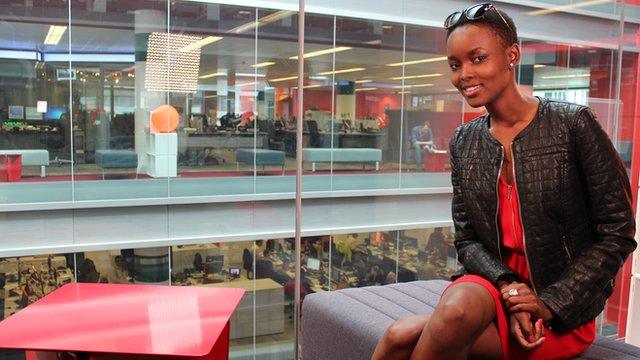Vlogging African fashion: Online the new trend?
- Published
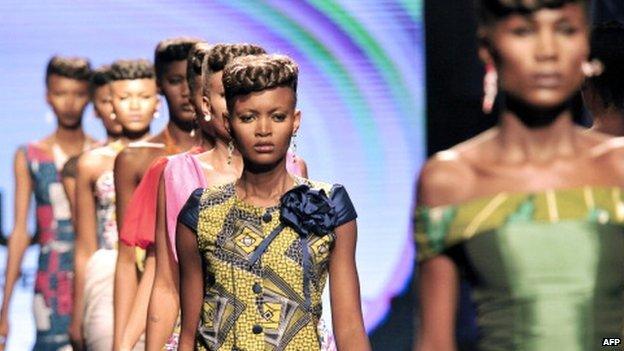
Established and emerging African designers are showcasing their work at this year's Africa Fashion Week London. But in an era where vloggers are increasingly setting fashion trends, BBC Africa's Alexis Akwagyiram considers whether the fashion focus has moved from the catwalk to cyberspace.
The fashion world is, stereotypically, summed up by the image of beautiful models gliding up and down a catwalk, adorned in flamboyant clothes.
Such scenes are a staple of Africa Fashion Week, an annual London event - now in its fourth year.
"Africa is hot right now," says Josette Matomby, a Congolese event manager and fashion designers based in east London who is one of the event's co-founders.
Ms Matomby says African prints have become fashionable in recent years, external and have been adopted by large fashion houses such as Burberry.
The fear that African designers were not benefitting from the popularity of their work was part of the motivation behind setting up the annual celebration of style in Africa and its diaspora, which she co-founded.
Dutch Africa fashion
She cites Dutch firm Vlisco, which has come to dominate parts of the continent's fashion market, as an example of this trend.
"We should be producing good quality textiles ourselves. I want Africans to be stakeholders in their own image," she says.
But an increasingly vocal school of thoughts suggests the biggest influencers are a new breed of tech-savvy fashion evangelists who share their knowledge of the latest trends in African-inspired clothing and accessories on social media platforms such as YouTube, Instagram and Twitter, as well blogs.
In doing so, they connect Africans and the diaspora.
Connecting with the young
Shirley B Eniang is a video blogger - or vlogger - with Ghanaian and Nigerian roots who lives in London and shares fashion tips with nearly half a million people who subscribe to her YouTube channel is perhaps the best known examples. Her videos, have been viewed well over 10 million times.
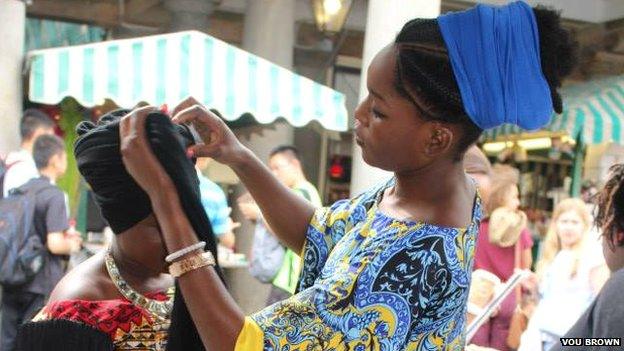
An older clientele prefers the personal touch, argues Liza Goje
Oghosa Ovienrioba, a 22-year-old British-born woman of Nigerian origin, has been vlogging for four years to her 10,000 subscribers.
"Social media has propelled African culture into people's lives. Images of Nigerian clothes, for example, are being shared in ways that they never used to be," says Miss Ovienrioba, who cites actress Lupita Nyong'o as one of her main inspirations.

Analysis: Hannah Pool, British-Eritrean journalist and curator
Social media - particularly in the form of vlogs - has been a game changer. It has brought about the democratisation of the fashion industry.
African designs and prints were previously deemed to be niche by the fashion mainstream. Now, through social media, anyone with an interest in African designs can find out more in a way that wasn't possible before.
In the future, the key will be for designers to create their own vlogs and blogs in order to engage with customers. There is still a place for Africa Fashion Week. It is still relevant because fashion shows of its kind give designers an opportunity to showcase their work, displaying their designs on models so that the clothes are seen in the way they were intended to be worn.
But there will come a time when there are too many African fashion shows. They also take place in Berlin and New York, as well as across the continent. Over time this may dilute the capacity of designers to get their work in front of key industry figures - which is still important.

"Young people can relate to fashion bloggers and vloggers. They're regular people and it's easy to find out what they're wearing. They'll tell you or it's on Instagram, whereas celebrities like Beyonce aren't accessible."
Miss Ovienrioba, who recently completed a law degree but now intends to pursue a career in marketing, says she is motivated to updated her vlog every week because she feels part of a worldwide community that transcends geography.
Vloggers are now able to negotiate contracts with big companies and advertisers.
Despite the enthusiasm felt inside - and beyond - this vlogging community, many designers are quick to point out that they are keen for their designs to speak for themselves.
"I don't follow any bloggers. In the past I've been contacted by a company who offered me the opportunity to give my material to bloggers. I would have to pay for them to wear my clothes and then talk about them," says Liza Goje, 33, a London-based Nigerian designer who set up her fashion boutique - Vou Brown - two years ago.
"I politely declined the offer," she says.

African-diaspora vloggers
BeautyByJJ, external - 369,000 subscribers
BeautyCrush, external - 1.3 million subscribers
BritPopPrincess, external - 437,000 subscribers
FusionofCultures, external - 135,000 subscribers
LizLizLive , external- 221,000 subscribers
Shirley B Eniang, external - 400,000 subscribers
StrawberryRipples, external 127,000 subscribers
Source: StyleHaul

She works with around 20 designers from more than eight African countries - including Sierra Leone, Ghana, Ivory Coast and the Democratic Republic of Congo.
Their clothes, accessories and home wares - such as an armchair upholstered with Kente cloth - are distributed across the continent and sold from her shop in Kilburn, north London.
Mrs Goje says she does not follow any vloggers and feels that the work, and that of designers with whom she works, appeals to a different audience.
"My clientele aren't moved by trends in the way that people who follow vloggers might be. If I had a younger clientele I would be trying harder to find out what was on trend."
Diaspora influence
However, Mrs Goje - who has three children aged under the age of eight - concedes that the African images of beauty and style her children grow up with will largely be dictated by the technology they consume.
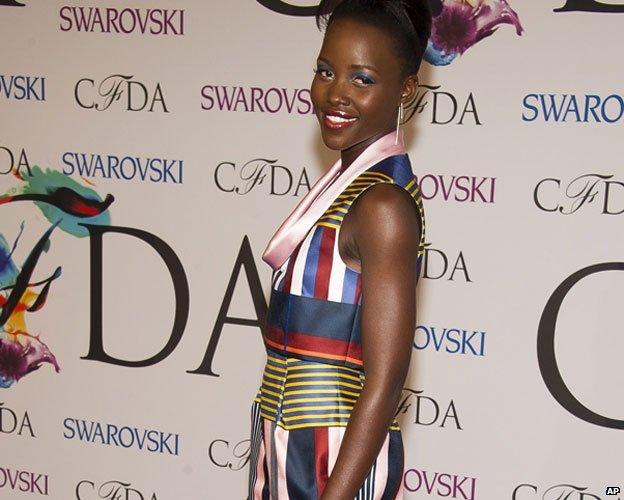
Oscar-winning Kenyan actress Lupita Nyong'o has put African beauty centre stage
"Everything is visual now. Videos are making a huge impact and that will only increase going forward," she says.
It seems that vloggers, designers and journalists are in general agreement that ties between Africans around the world lies at the heart of conversations related to style and fashion.
In the UK, for example, African communities are growing.
Comparison between the UK census in 2001 and 2011 reveal that the country's black African population more than doubled from 484,783 to 989,628, external. Africans also overtook Caribbeans to become the the majority group in the country's black community during that period.
"The relationship between African and its diaspora is changing in a positive way. More people in the diaspora are looking to home now. People are embracing their culture more," Mrs Goje says.
This, of course, begs the question of why such an event would be held in London, rather than an African city.
Africa Fashion Week co-founder Ms Matomby is quick to provide an answer.
"What happens in London, Paris, Milan and New York influences fashion worldwide," she argues.
"Africa and its diaspora need to have an impact on London to exert influence in the rest of the world."
- Published31 July 2014
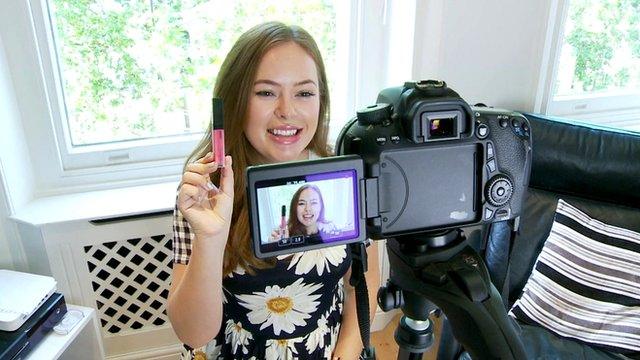
- Published4 April 2014
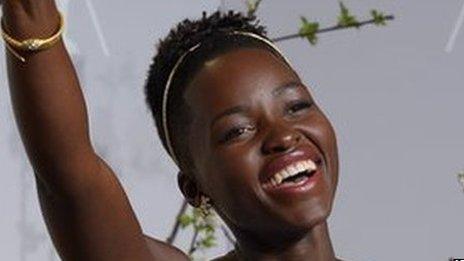
- Published20 March 2014
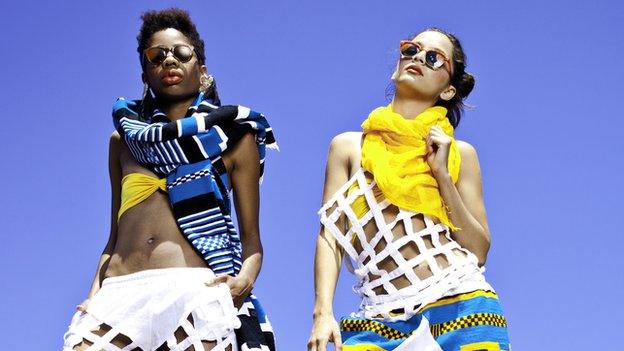
- Published3 August 2013
- Published2 August 2013
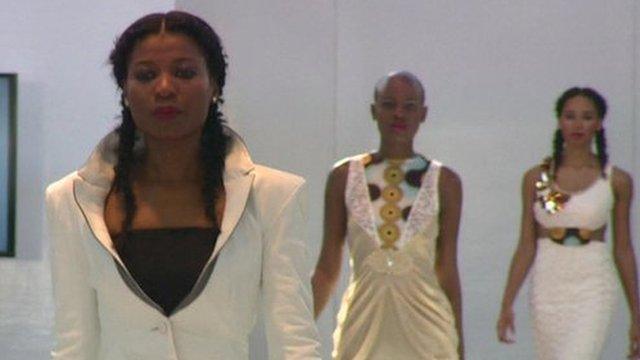
- Published20 September 2012
